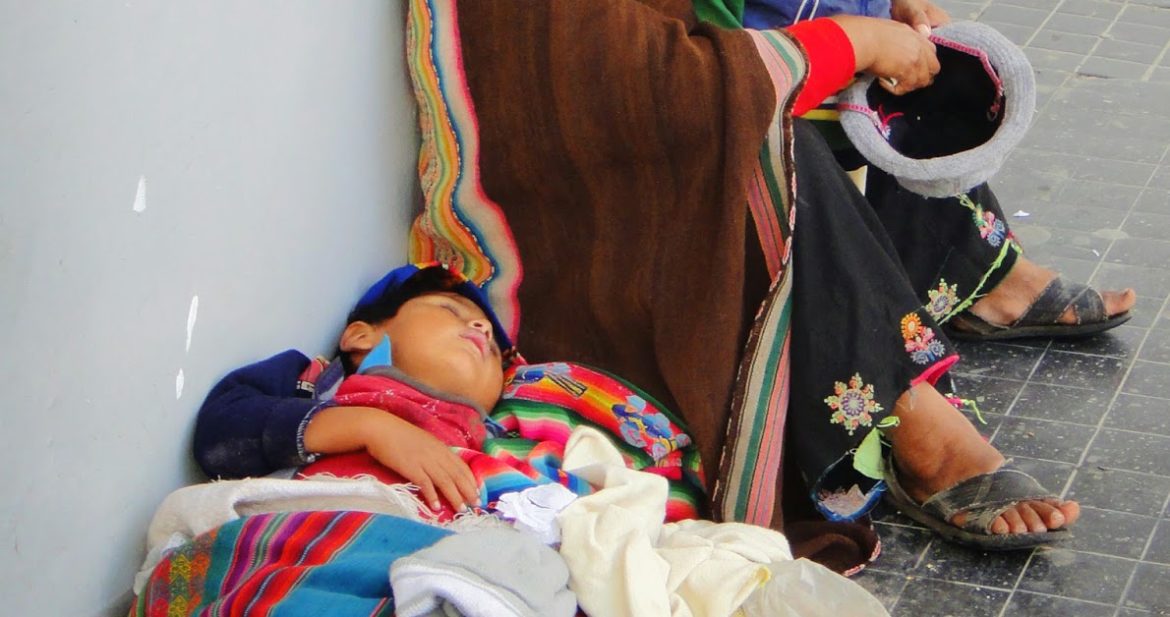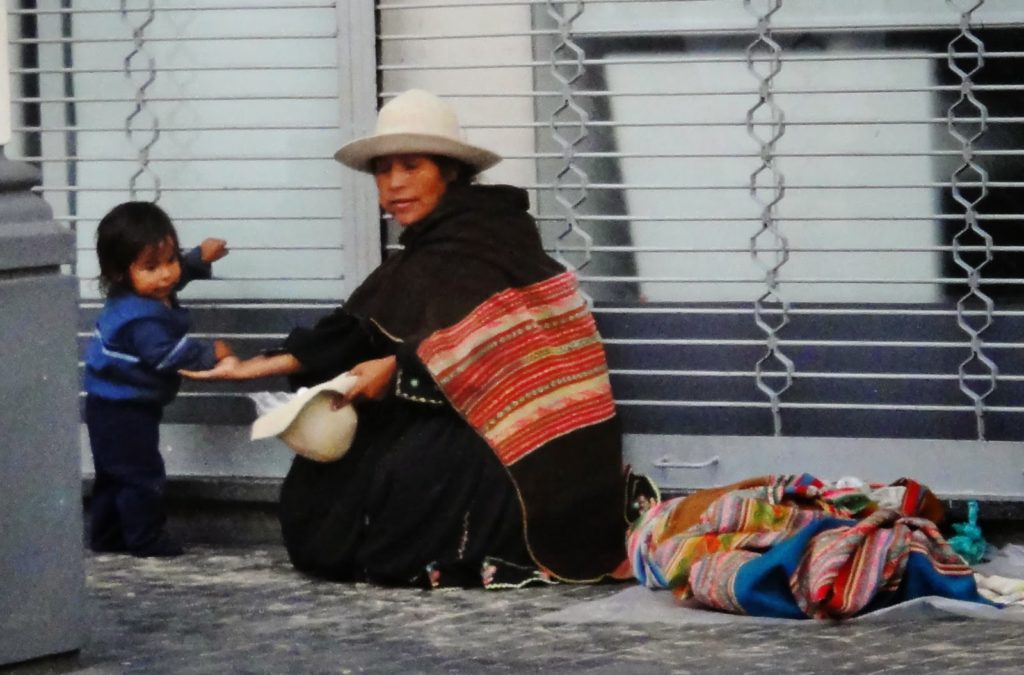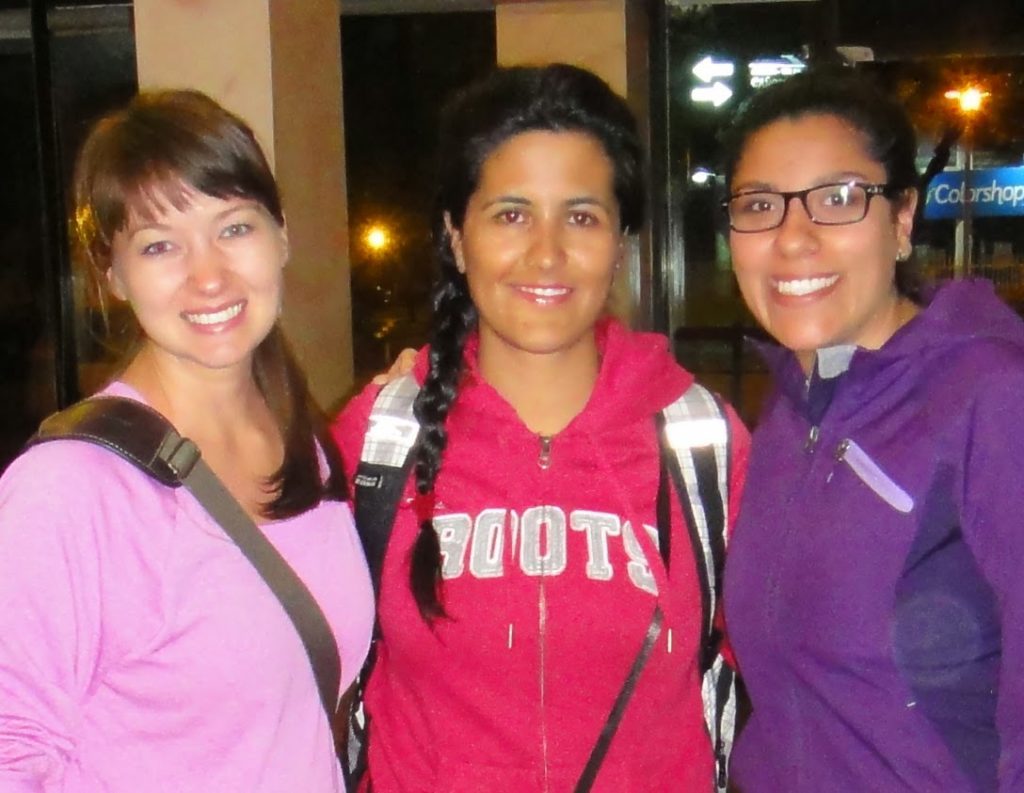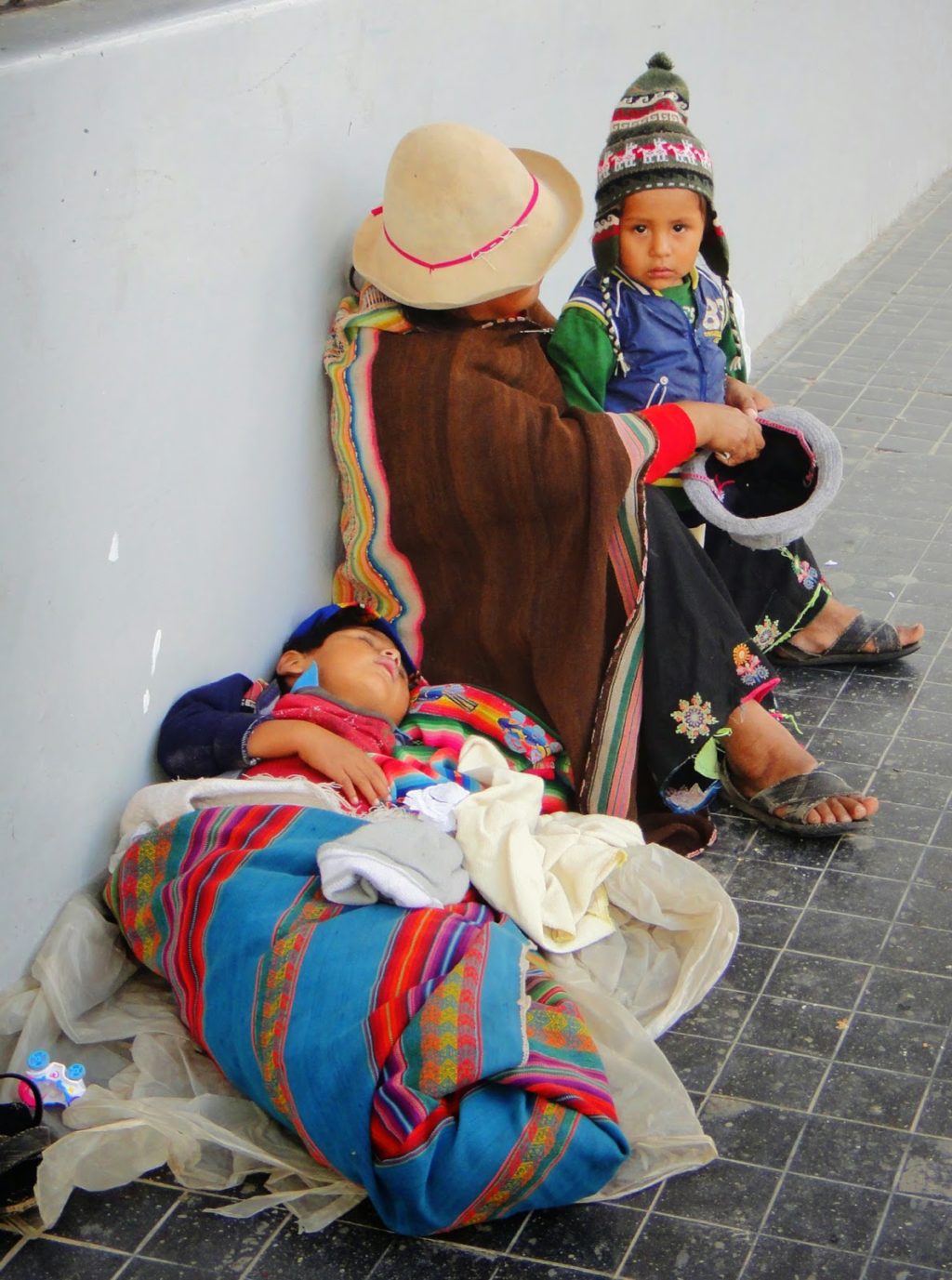 |
| In downtown Santa Cruz |
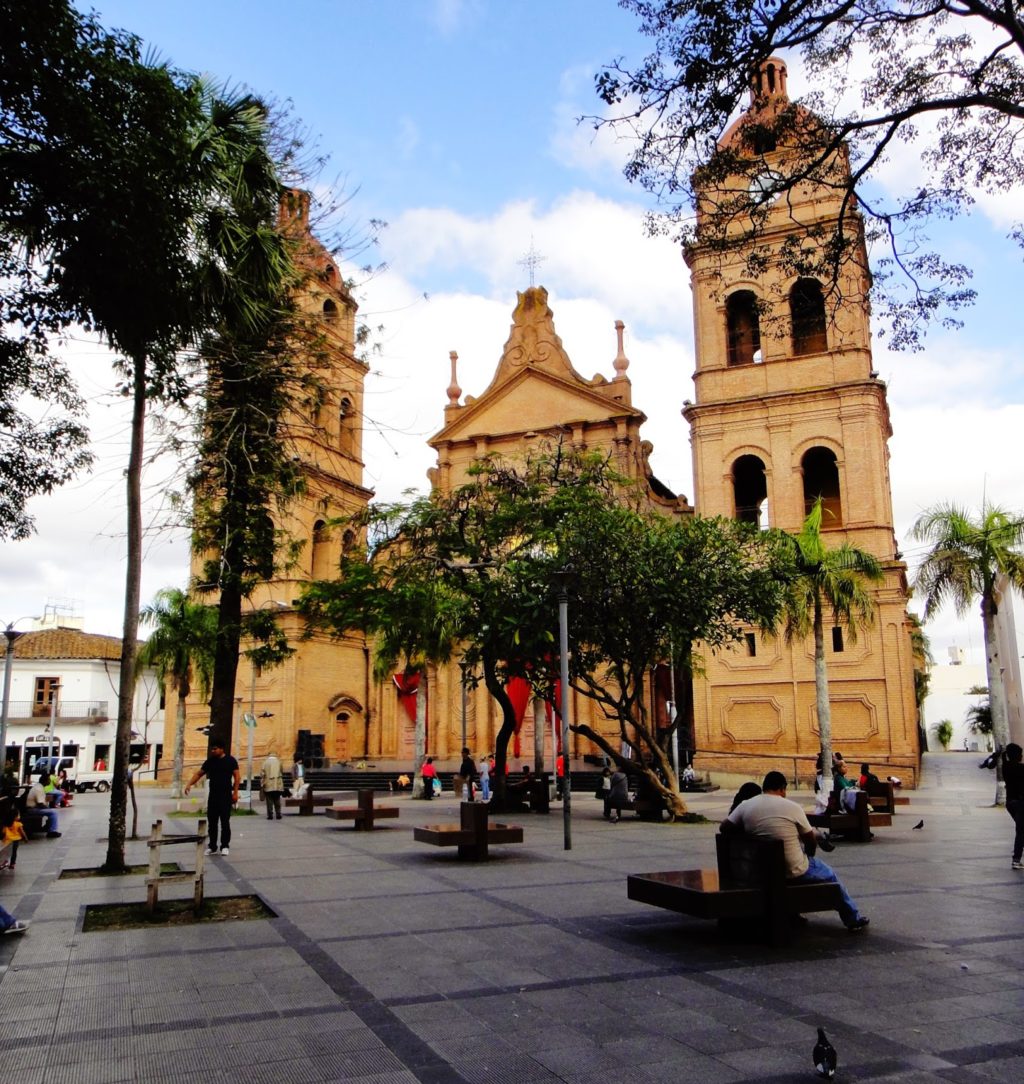
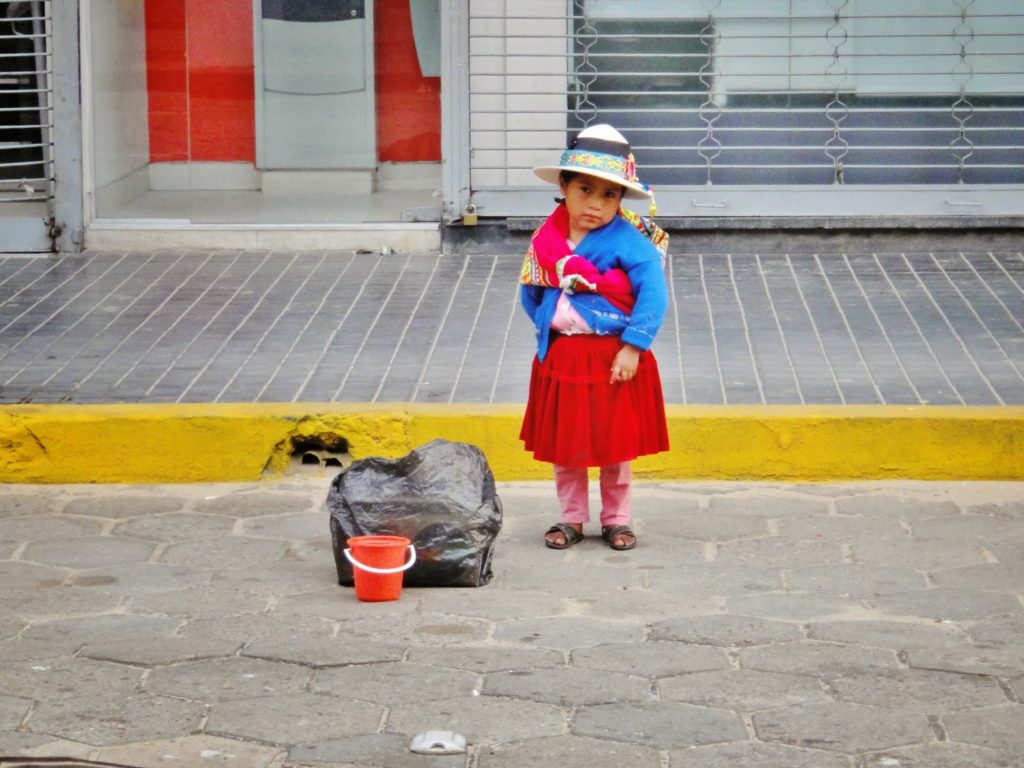 |
| In downtown Santa Cruz, sort of dancing to indigenous-style music (her mom is just out of the photo with a baby) |
| Plaza 26 de Septiembre |
This spring, CHP celebrated the program’s 1,000th surgery over nearly two decades. It’s now working with clinics in Uganda, Mongolia, Honduras and Bolivia to keep saving tiny lives.
When I told Isaac’s cardiologist I was transporting Santi back to Bolivia he told me he had once planned to help at a Mongolian clinic. An ill-timed hurricane damaged his home and he had to cancel his trip, but his wife, a social worker, was still able to go help out for three weeks. I thought that was cool.
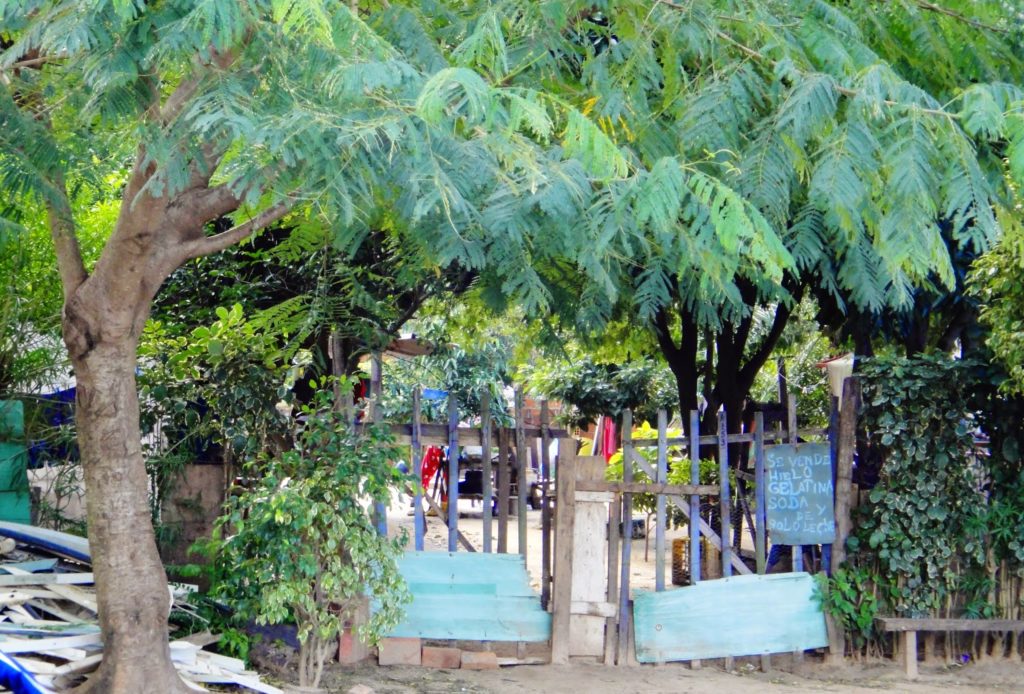 |
| A little outside downtown |
But back to Bolivia, both Carola and Abi live in La Paz. They say it’s very different from Santa Cruz: cold vs. hot, political and business-oriented vs. industrial, less vibrantly colorful, more educated, more reserved. Both ladies were impressively multilingual, smart and pretty. We were all the same age. We talked about jobs, travel, boys. It was awesome. After teatime, we wandered back to the hotel to collect Abi’s bags and take her to the airport. I left early the next morning.
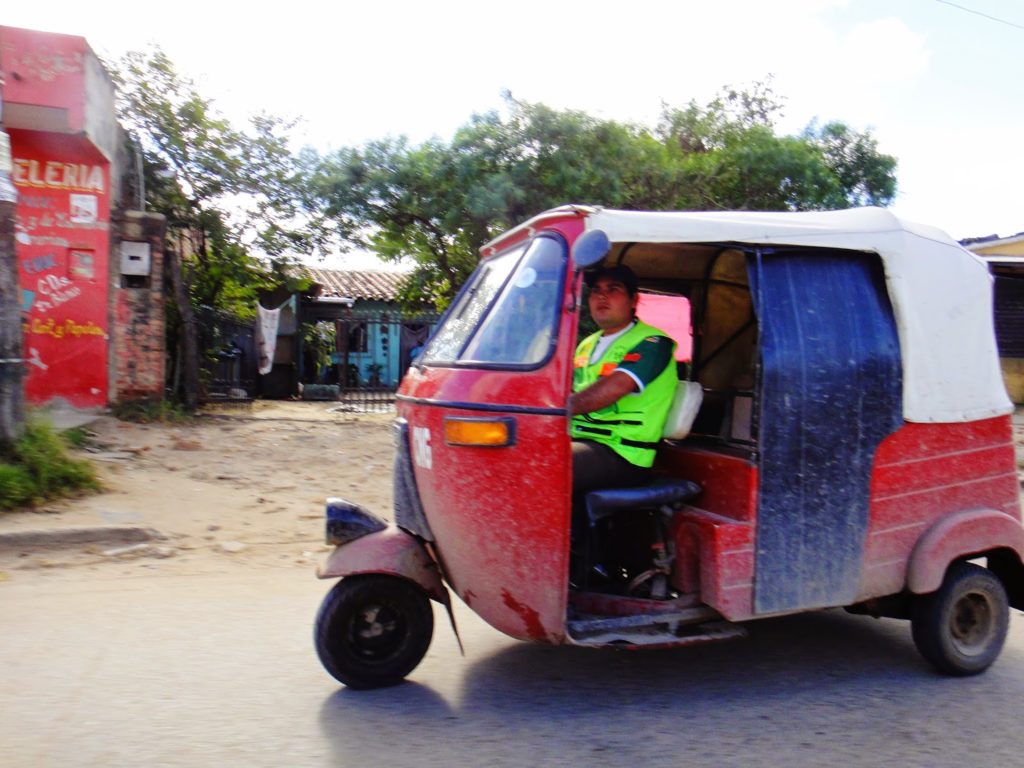 |
| Moto-taxi: we did not take one of these to the airport |
“Ok, I have a tourist question for you,” I asked Abi in the taxi. She grinned. It was actually a bunch of questions.
Q: The people we saw near the plaza who were dressed traditionally—is it a costume they wear to ask for money? Or do some people dress like that always?
A: Usually, people outside the cities dress more traditionally. Within the city, people dressed traditionally are more likely to be new immigrants.
Q: And do Bolivians see Bolivians of indigenous heritage as all one and the same Bolivian, or is it more European-descent Bolivians and indigenous Bolivians as separate groups? (this involved some consideration and discussion)
A: Maybe sort of separate, because usually it falls into urban vs. rural populations. But even in the cities traditional heritage is becoming more and more popular.
Q: So at school, university, work, where ever, would you sometimes find yourself sitting next to someone dressed traditionally?
A: Well, schools have uniforms, so no. In the cities, maybe people like to wear traditional clothes at home, to feel comfortable.
I really enjoyed meeting these ladies, and have lots of respect for the awesome, sometimes difficult, work they do!
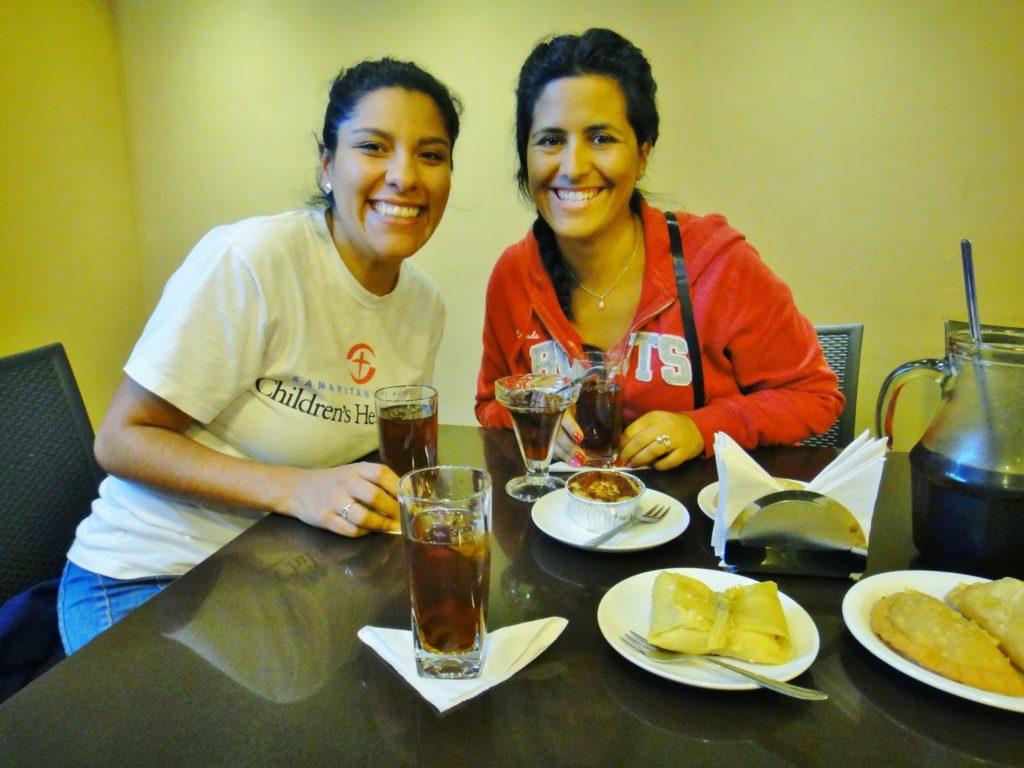 |
| Carola and Abi! And our teatime spread. |
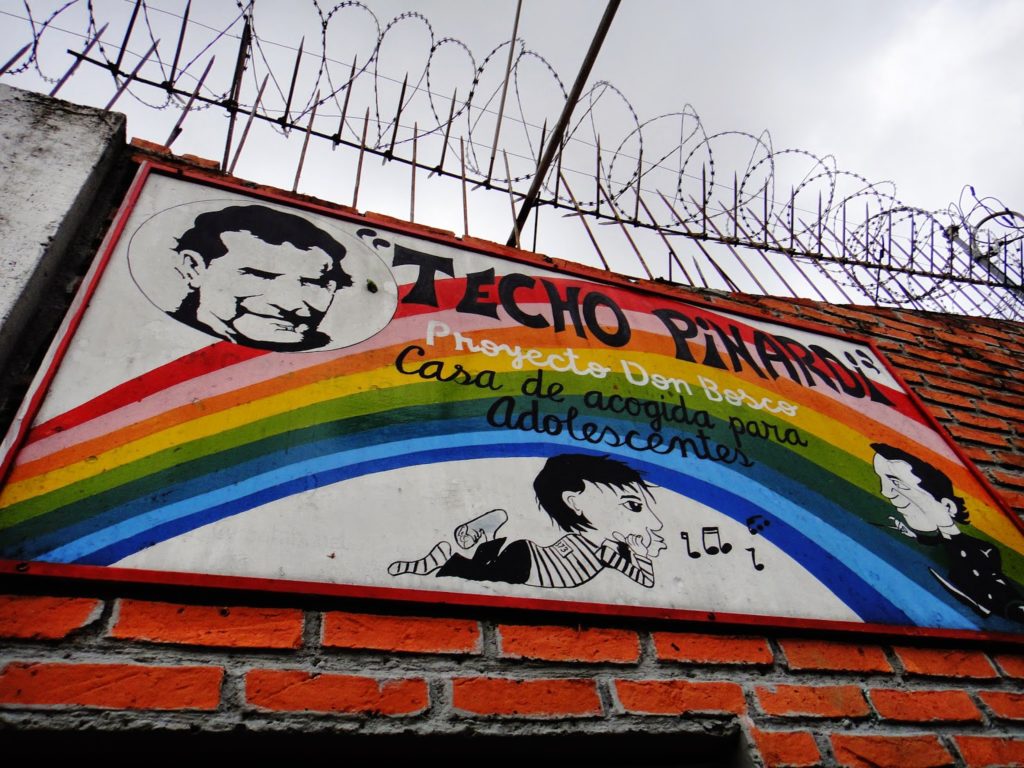 |
| No idea what this place is, but I love the barbed wire/rainbow combo |
